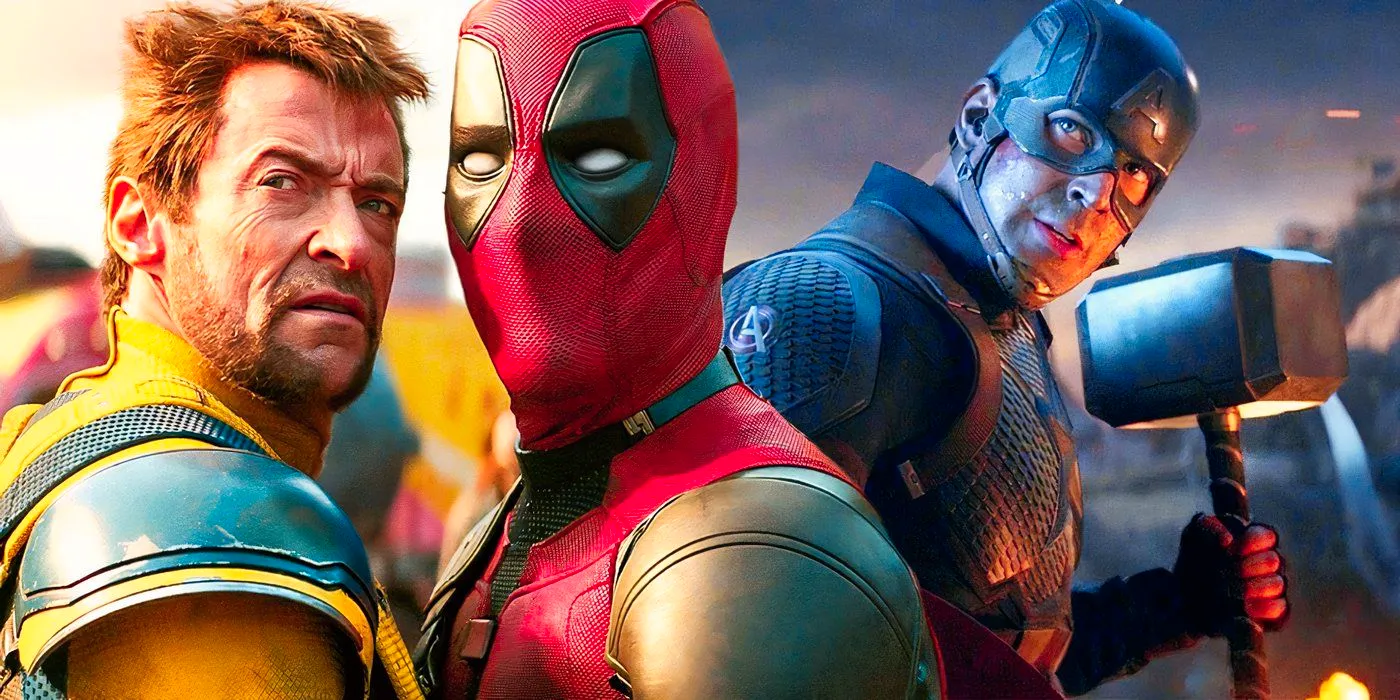The Decline of Narrative Stakes and Hugh Jackman's Comeback
Given Logan's moving finale, there have been concerns about how Hugh Jackman's return to Wolverine in "Deadpool & Wolverine" may affect character endings. Even while many people are happy to see a cherished character return, Wolverine's parting in Logan becomes less definitive. This begs more general concerns over the MCU's policy of character endings, particularly in light of the Multiverse Saga's debut.
Not just Wolverine is part of this pattern of resurrection figures. Following what seemed to be a last scene in "Avengers: Endgame," Robert Downey Jr. will reprise his role as Doctor Doom in the Marvel Cinematic Universe (MCU). This raises questions regarding the MCU's character continuity and narrative stakes going forward, particularly in light of the Multiverse Saga's rising importance.
The Human Torch cameo of Chris Evans: A cheapened farewell?
Chris Evans' appearance in "Deadpool & Wolverine" as the Human Torch introduced a level of nuance to the conversation over character endings. Although fans were ecstatic to see him again, this cameo unintentionally lessens the poignancy of Captain America's parting in "Avengers: Endgame." It was said that Steve Rogers' departure marked a sad denouement, enabling him to finally experience the bliss he had been denied. Evans's return as a different character lessens the emotional impact of his character's happy ending and lessens the significance of his departure as Steve Rogers.
There are concerns regarding the MCU's treatment of character continuity and fan expectations in light of Chris Evans's reappearance as the Human Torch. Reintroducing characters to the MCU requires a careful balancing act so as not to diminish the emotional impact of their prior exits. It's a problem that will probably become even more prominent as the Multiverse Saga progresses, offering a plethora of chances for different timelines and character resurrections.
Character Continuity and the MCU's Multiverse Saga
Character continuity has taken on a new form in the MCU with the introduction of the Multiverse Saga, which has made it more difficult to distinguish between certain endings and possible comebacks. Character comebacks are essentially endless in a story where different universes and timelines play a significant role. This offers a great chance for imaginative storytelling, but it also runs the risk of lessening the impact of character departures and deaths on the audience's emotions.
The stakes of the story seem less important if every character has the ability to be revived or to return in a different universe. This is a typical critique of Robert Downey Jr.'s comeback performance as Doctor Doom. Even though it's thrilling to see these cherished characters return, the MCU needs to be careful to weigh the effects on character continuity and narrative stakes to make sure that these resurrections don't lessen the emotional impact of their earlier deaths.
RDJ's Doctor Doom Return: A Navigational Test for the MCU
With Robert Downey Jr. reprising his role as Doctor Doom, the MCU will have to successfully manage the challenges of maintaining character continuity and meeting fan expectations. Tony Stark's sacrifice in "Avengers: Endgame" provided a potent and poignant conclusion to his character development, making it a crucial point in the franchise. It will be difficult to reconcile these two incarnations of Downey without discrediting Tony Stark's selfless sacrifice if he returns as a new person.
The outcome of this project will probably dictate how character reintroductions in the MCU develop going forward. The MCU will have demonstrated a deft balancing of narrative innovation and character legacy if it can bring Downey back as Doctor Doom without undermining the relevance of Tony Stark's legacy. But if the comeback comes across as contrived or lacking in emotional impact, it might compel the MCU to reconsider its approach to character continuity and Fan Expectations.
The MCU Must Strike a Balance
With regard to character destinies and the implications of the Multiverse Saga, the MCU is at a crossroads. Fan service and nostalgia are strong instruments, but it's important to utilize them carefully to prevent devaluing the emotional significance of earlier storylines. The MCU needs to strike a balance between upholding the integrity of the story and meeting audience expectations. This entails weighing the significance of character resurrection carefully and making sure that these reappearances further the story rather than just play on nostalgia.
Character consistency in the MCU may not last, but the Multiverse Saga will undoubtedly keep changing the face of storytelling. The Multiverse Saga's success will largely depend on how well the MCU manages this new reality while maintaining the emotional effect of past character departures.



